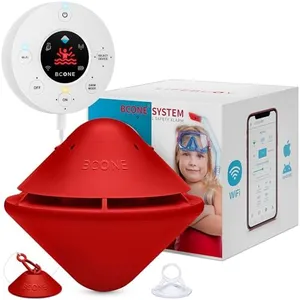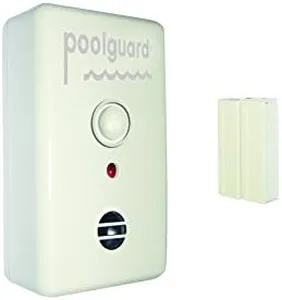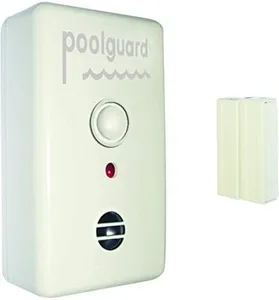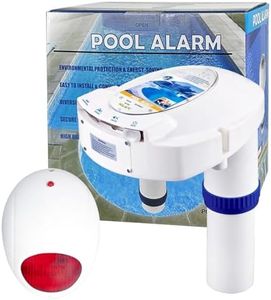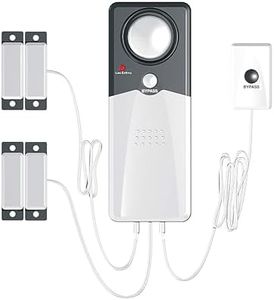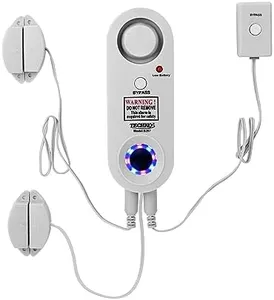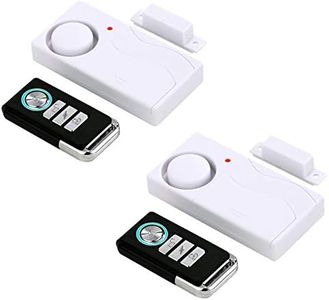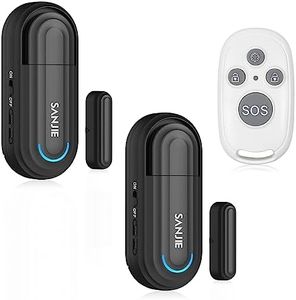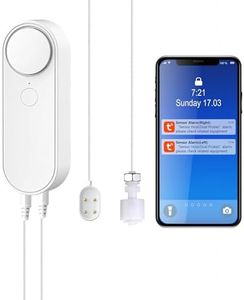We Use CookiesWe use cookies to enhance the security, performance,
functionality and for analytical and promotional activities. By continuing to browse this site you
are agreeing to our privacy policy
10 Best Pool Alarms
From leading brands and best sellers available on the web.By clicking on a link to a third party's website, log data is shared with that third party.
Buying Guide for the Best Pool Alarms
Selecting the right pool alarm is a crucial step for increasing safety around your swimming pool. A pool alarm can alert you if someone, especially a child or pet, enters the pool unexpectedly, helping to prevent accidents. When you're choosing a pool alarm, it's important to think about what type of pool you have, who will be using the pool, and where you need to place the alarm. By understanding the key features and their practical importance, you can choose an alarm that fits your specific needs and keeps your pool environment secure.Alarm TypeThe type of alarm refers to how the device detects entry or movement in or around the pool. There are several types: surface wave sensors, subsurface sensors, wearable alarms, and gate alarms. Each works differently—the surface and subsurface sensors are installed in or on the pool and detect movement in the water, while gate alarms alert you if the pool gate is opened. Wearable alarms are devices worn by children or pets to trigger an alert if submerged. Your choice should depend on who you need to protect and the setup of your pool area; for example, families with young children often prefer a combination for extra safety.
Sensitivity AdjustmentSensitivity adjustment refers to how the alarm responds to different levels of movement in the water. Some alarms can be set to ignore small disturbances like wind or rain, while others may pick up even slight ripples. If your pool is exposed to the elements or has a lot of activity, you might want an alarm with adjustable sensitivity. This helps you reduce false alarms while ensuring real emergencies trigger the alert. Think about your environment and typical pool use to determine how sensitive your alarm should be.
Volume and Sound TypeThe volume and type of alarm sound indicate how easily you'll hear the alert in and around your home. Alarms come with different loudness levels and sometimes distinct tones to catch attention quickly. If your pool is far from your living spaces or you have a noisy environment, look for an alarm with a loud and piercing sound. Choosing the right volume and tone helps ensure you’ll be alerted in time, even if you’re indoors or distracted.
Power Source and Battery LifeThe power source tells you whether the alarm is battery-operated, solar-powered, or plugged in. Battery life is important because some alarms need regular battery replacements, while others last several months. Frequent maintenance can be inconvenient, so consider how often you're able to check and replace batteries. If you’re looking for low maintenance, a long battery life or solar-powered option may be best.
Installation and CompatibilityInstallation and compatibility refer to how easy it is to set up the alarm on your pool and whether it works with your specific pool type, such as in-ground or above-ground. Some alarms are designed for specific styles or sizes of pools, which can affect how well they function. Choosing one that fits your pool means it will perform properly and be easier to use. Make sure to pick a model that's clearly suited for your pool’s shape and structure.
Remote and Wireless AlertsRemote and wireless alert capabilities allow the alarm to send a signal to a receiver inside your home or on your phone, not just at the pool. This is important if you won’t always be near the pool area. With remote alerts, you’re more likely to hear the alarm in time, especially in larger homes or busy households. If you need to monitor your pool from inside or at a distance, look for systems with wireless or networked alert features.
